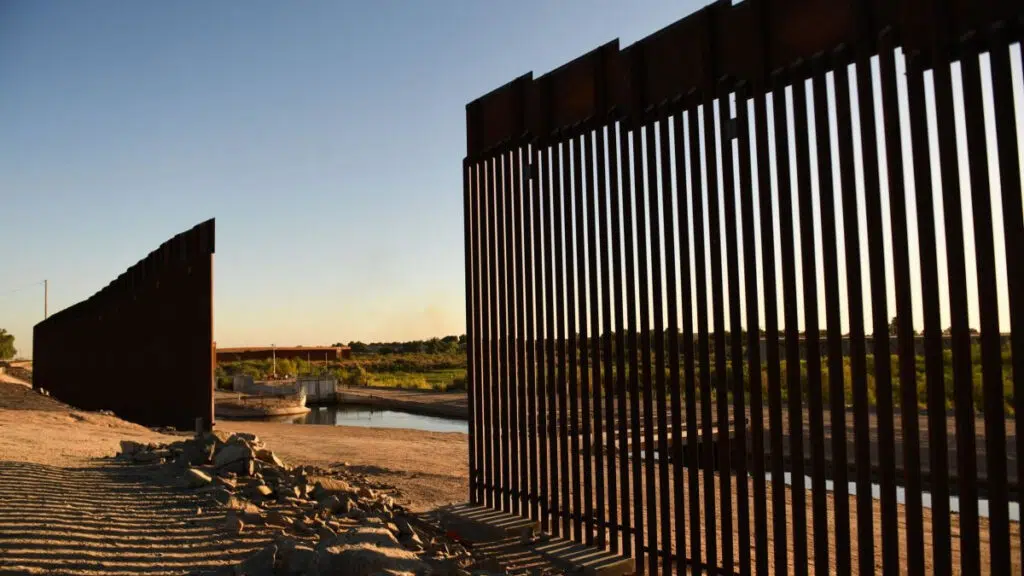
Border Patrol chiefs say agents pulled from field have detrimental consequences, homeland isn’t secure
As part of the U.S. House Committee on Homeland Security’s investigation into the “dereliction of duty” of U.S. Department of Homeland Security Secretary Alejandro Mayorkas, the committee interviewed U.S. Border Patrol chiefs and recently released transcripts of their testimony.
This is the second report on released transcripts. The first related to chiefs explaining how “illegal aliens are spreading the word the border is open,” incentivizing more illegal activity.
“As some senior Border Patrol leaders told us, Border Patrol agents signed up for this job because they want to be in the field, helping secure the homeland and protect their families and communities. Under Secretary Mayorkas, however, that mission has been largely taken away from them,” committee chairman U.S. Rep. Mark Green, R-Tenn., said. “Processing and releasing illegal aliens into the interior is not the job they signed up for and it pulls them away from their vital frontline security mission. It goes directly against their law enforcement mandate to enforce consequences against lawbreaking, not reward it.
In the second batch of transcripts, chiefs described how agents are reassigned to process and release “illegal aliens into the country rather than patrolling the border between ports of entry,” which has negatively impacted agent morale and increased security risks.
The interviews were conducted between April and September, prior to the current surges many sectors are experiencing. Since the interviews were conducted, more agents have been pulled from the field.
El Centro Chief Border Patrol Agent Gregory Bovino said a surge in his sector took agents away from their primary purpose to protect the homeland. “Any time there is a surge of individuals processing care, feeding and care of those individuals takes Border Patrol agents away from their primary job of preventing bad people and bad things from coming across the border,” he said.
Tucson Sector Chief Border Patrol Agent John Modlin said 38% of his agents were processing and overseeing detention, up from 20% when he testified before the committee in February. He said that has impacted morale.
“The challenge is when agents are performing duties that they don’t feel are part of the border security mission, that’s where it becomes potentially a morale issue.”
This primarily involves overseeing detention, which he said “is detrimental to morale. The overwhelming majority of agents want to be out in the field. That’s why they became Border Patrol agents.”
The chiefs of El Paso and Big Bend sectors said at the time that 12% and 16%, respectively, of their agents were assigned to processing, pulled from the field; “the majority want to be out doing standard Border Patrol work in the field.”
Rio Grande Valley Chief Border Patrol Agent Gloria Chavez explained the impact of surges, when large groups in the hundreds and thousands illegally enter between ports of entry and overwhelm agents. “The logistics, the personnel, the impacts are very similar,” she explained and have a “significant impact” on morale. “Agents, for the most part, want to be on patrol. They want to do the mission of border security. To us, it’s a concern everything that happens between those ports of entry,” she said.
Yuma Sector Deputy Chief Border Patrol Agent Dustin Caudle, who worked in the El Centro Sector in California before coming to Arizona, explained that Yuma has “a significantly higher daily encounter rate” and “capacity issues almost every day.”
Yuma agents “were overwhelmed with transportation duties. They were overwhelmed with processing duties. There were multiple support requests to get detailed personnel in there to assist with that. A large percentage of the Border Patrol agents were pulled off of their line functions and performing administrative or processing duties rather than performing that frontline law enforcement mission,” he said.
Caudle came to Yuma in August 2022. Prior to his arrival, the sector saw roughly 1,624 encounters a month in 2021; one year later, it had over 20,000 a month. At the time of his interview, he said 20% of his agents were assigned to processing.
“When you have that type of volume, which is overwhelming for any law enforcement agency, it has an impact to operations because operations have to be shifted,” he explained. These include “a humanitarian-type mission in order to protect vulnerable populations, … transport duties, … processing to ensure that overcrowding capacity issues are kept at a minimum.” As a result of massive illegal entries, “operations will suffer, … will be impacted.”
San Diego Sector Chief Border Patrol Agent Aaron Heitke also explained that to alleviate inundated sectors, his agents would process people from full capacity and overwhelmed sectors of El Paso, Rio Grande Valley and Yuma. Modlin said he sent roughly 50 agents at a time to Del Rio and Rio Grande Valley sectors in Texas when they were experiencing surges, which “certainly … affected our level of border security.”
Former Del Rio Sector Chief Border Patrol Agent Jason Owens, who is now the Chief of Border Patrol, explained the process, saying agents are “detailed away from their permanent station. And that, of course, comes at the expense of what they’re supposed to be doing at their station.” Del Rio Sector received up to 75 agents a month from the northern border to help with an influx, he said.
In response, Green said, “It’s little wonder why agents continue to tell anyone who will listen … that morale has cratered, and many are questioning why they should continue on the job. This consequence of Secretary Mayorkas’ reckless disregard for the laws of this country will reverberate for as long as his policies remain in place.



